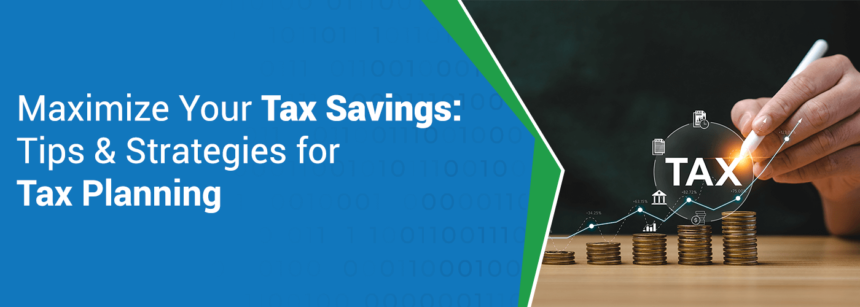Tax planning is a crucial aspect of managing your finances effectively. By employing the right strategies, individuals can minimize their tax liabilities and maximize their returns. In this comprehensive guide, we will explore various tax planning techniques, including tax deductions, credits, and exemptions, providing you with actionable advice to optimize your tax planning strategies.
- Understanding Tax Deductions: Tax deductions play a significant role in reducing your taxable income. By identifying eligible deductions, you can lower your overall tax burden. Some common deductions include mortgage interest, medical expenses, state and local taxes, and charitable contributions. Keeping detailed records and consulting with a tax professional can help you identify all applicable deductions and maximize your savings.
- Exploring Tax Credits: Unlike deductions that reduce your taxable income, tax credits directly reduce your tax liability. Familiarize yourself with available tax credits, such as the Child Tax Credit, Earned Income Tax Credit, or Education Tax Credit. These credits can significantly reduce the amount of tax you owe, providing substantial savings.
- Utilizing Retirement Contributions: Contributing to retirement accounts, such as a 401(k) or Individual Retirement Account (IRA), not only helps secure your future but can also offer tax advantages. Traditional 401(k) and IRA contributions are tax-deductible, meaning you can lower your taxable income by the amount you contribute. Furthermore, Roth 401(k) and Roth IRA contributions may not be tax-deductible upfront, but withdrawals in retirement are tax-free, providing long-term tax benefits.
- Taking Advantage of Flexible Spending Accounts (FSAs) and Health Savings Accounts (HSAs): FSAs and HSAs are powerful tools for managing healthcare expenses while enjoying tax benefits. FSAs allow you to set aside pre-tax dollars to cover qualified medical expenses, reducing your taxable income. HSAs, on the other hand, are available to individuals with high-deductible health plans and offer triple tax benefits: contributions are tax-deductible, earnings grow tax-free, and withdrawals for qualified medical expenses are tax-free.
- Capitalizing on Tax-Efficient Investments: Investing in a tax-efficient manner can help minimize your tax liabilities. Consider holding investments for more than a year to qualify for long-term capital gains tax rates, which are often lower than short-term rates. Additionally, tax-efficient funds, such as index funds or ETFs, can reduce the impact of capital gains distributions, further optimizing your tax situation.
- Planning Charitable Contributions: Charitable giving not only supports causes you care about but can also yield tax benefits. Donating to qualified charities allows you to claim deductions on your tax return. Ensure you keep proper documentation of your contributions, including receipts or acknowledgment letters from the organizations you donate to.
- Timing Income and Expenses: Strategic timing of income and expenses can have a significant impact on your tax liability. Consider deferring income to a later tax year or accelerating expenses into the current year to optimize your taxable income. However, be mindful of tax laws and consult with a tax professional to ensure compliance.
Tax planning is a valuable skill that can lead to substantial savings for individuals. By familiarizing yourself with tax deductions, credits, and exemptions, making use of retirement accounts and tax-advantaged healthcare options, investing tax-efficiently, and strategically timing income and expenses, you can maximize your returns and minimize your tax liabilities. Remember to consult with a qualified tax professional for personalized advice based on your specific circumstances, as tax laws can be complex and subject to change. Start implementing these strategies today and unlock the potential for a brighter financial future.




